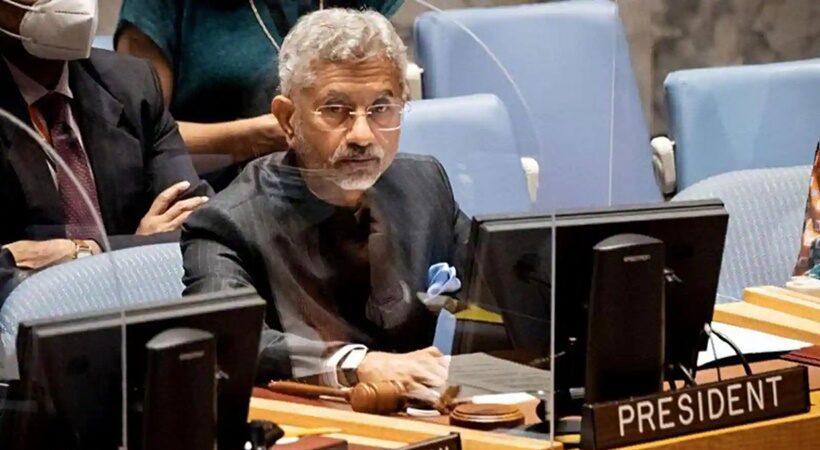On Thursday, India said that there could be an increasing threat posed by terror groups like Lashkar-e-Taiba (LeT), Jaish-e-Mohammed (JeM) and Haqqani Network due to the continuously degrading situation in Afghanistan. The country pointed out that the UN Security Council cannot afford any complacency on the matter.
Other Security Council members also joined India in the country’s call for a zero-tolerance approach towards terrorism.
External affairs minister S Jaishankar raised the country’s concerns as he chaired a Security Council briefing on the theme, “Threats to international peace and security caused by terrorist acts”. This third signature event organised by India comes in the backdrop of the Taliban taking over Afghanistan.
“Events unfolding in Afghanistan have naturally enhanced global concerns about their implications for both regional and international security. The heightened activities of the proscribed Haqqani Network justifies this growing anxiety,” Jaishankar was quoted as saying, adding that the Islamic State-Khorasan has “become more energetic and is constantly seeking to expand its footprint”.
Raising India’s concerns about Pakistan-based terror groups, Jaishankar said, “Whether it is in Afghanistan or against India, groups like Lashkar-e-Taiba and Jaish-e-Mohammed continue to operate with both impunity and encouragement. It is, therefore, vital that this Council does not take a selective, tactical or complacent view of the problems we face.”
Jaishankar, without naming any country, said that the world community “must never countenance sanctuaries for terrorists or overlook the raising of their resources”. He added, “And when we see state hospitality being extended to those with innocents’ blood on their hands, we should never lack the courage to call out this double-speak…What is true of Covid is even more true of terrorism: none of us are safe until all of us are safe.”
Jaishankar said that along with building on the eight-point action plan for countering terrorism, the stalemate preventing the adoption of a Comprehensive Convention on International Terrorism put forward by India can be ended by the security council.
Talking about India’s approach towards the current tense situation in Afghanistan, Jaishankar said, “We are working with international partners in this regard, principally the US because they control the airport.”
“In terms of the longer perspective, we have a historical relationship with the Afghan people and I think that relationship will continue to guide our thoughts and outlook,” he added.
Under secretary-general of the United Nations Office of Counter-Terrorism (UNOCT), Vladimir Voronkov briefed the event and Michele Coninsx, executive director of the Counter-Terrorism Committee Executive Directorate (CTED).
Davood Moradian, director-general of the Afghan Institute for Strategic Studies, also briefed the event. Moradian had flown to Kabul this week.
“The Taliban and their regional partners particularly…Pakistan should reflect on their principle role in either mitigating or accelerating a catastrophic situation in Afghanistan, an outcome that will determine our decades-old [campaign] against terrorism,” Moradian said.



















